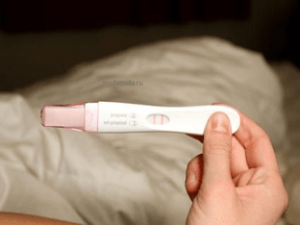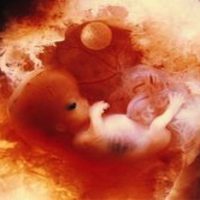 Sometimes your body will hide things well, and other times you just know that changes are happening.
Sometimes your body will hide things well, and other times you just know that changes are happening.
When it comes to pregnancy, this awareness can come in different degrees: some women swear they can tell exactly when they conceived, while others will only be convinced with a positive test result from the doctor.
Although it\’s hard to predict which symptoms will be your first signs of pregnancy and which ones may pass you by altogether, you\’ll want to familiarize yourself with some of the most common early pregnancy symptoms so you know what to look out for.
Sometimes your body will hide things well, and other times you just know that changes are happening.
When it comes to pregnancy, this awareness can come in different degrees: some women swear they can tell exactly when they conceived, while others will only be convinced with a positive test result from the doctor.
Although it\’s hard to predict which symptoms will be your first signs of pregnancy and which ones may pass you by altogether, you\’ll want to familiarize yourself with some of the most common early pregnancy symptoms so you know what to look out for.
Early Signs of Pregnancy
How do you know if you\’re pregnant? Well, since every woman is different, each mom-to-be will have a unique experience from the very beginning of her pregnancy. On the other hand, some symptoms tend to affect many, if not most, women in the first weeks following conception. These are some of the most common, obvious and accurate signs of pregnancy:
Missed Period. This is the biggest sign that you\’ve conceived, but it can be surprisingly imprecise at the same time. For instance, is the spotting that you\’re experiencing implantation symptoms or could it simply be a light period?
If you\’re like many women, your cycle isn\’t always predictable and your stress level could even be affecting your ovulation calendar. If you\’ve missed your period, it\’s a good idea to take a home pregnancy test, or for more accurate results, visit your doctor for a blood test.
Breast Changes. Many women experience breast changes right before their period each month, and those symptoms can be confused with the breast changes of pregnancy symptoms. However, there are some differences.
Many mothers-to-be report that their breast tenderness, swelling and tingling are noticeably more intense than their usual pre-period symptoms, and the areolas may begin to darken and enlarge fairly early in pregnancy. It can be tricky to tell normal cyclical changes from breast changes due to pregnancy, but it is one of the most common early symptoms of pregnancy.
Fatigue. Have you been feeling particularly tired lately? When you can\’t attribute your heavy eye lids to a late night or an extra busy schedule, you may be experiencing the legendary fatigue of early pregnancy.
Although it may not be painful or nauseating, many women agree that extreme fatigue is one of the worst first trimester symptoms, simply because it interferes with every part of your day. Instead of trying to push through it, try to squeeze in a nap when you need to recharge.
Headaches. While migraine headaches can ease up during pregnancy, many women suffer from more frequent tension headaches in the first months of pregnancy. Although nobody has pinpointed the cause of these early pregnancy headaches, many experts believe it\’s just another unwelcome side effect of those surging hormones and changes in your circulation.
Luckily, these headaches are probably temporary and will begin to wane as your body adapts to its higher hormone levels, but in the meantime, try some relaxation exercises to calm your muscles and emotions. Also, stick to a regular sleep and meal routine to avoid shocking your body, and try out a warm or cool compress for some immediate — and natural — relief.
When Does Morning Sickness Start?
Although a missed period and tender breasts will raise your suspicions, morning sickness is often the first and most uncomfortable symptom of pregnancy. For some, the queasiness sets in by the end of the first month; around 70% of expectant mothers will suffer from regular bouts of morning sickness by the two month mark.
Unfortunately, nausea tends to get worse over the second month of pregnancy, but you\’ll be glad to hear that it will disappear for most women by the beginning of the second trimester.
Aside from nausea, your spiking estrogen and hCG levels can bring on other digestive troubles, like constipation and heartburn.
Sadly, most medication is off limits while you\’re expecting, so you\’ll have to modify your diet and exercise routine to quell the discomfort. Focus on many small meals, but space them evenly throughout your day and remember to up your water intake to keep your digestive track happy and healthy.









